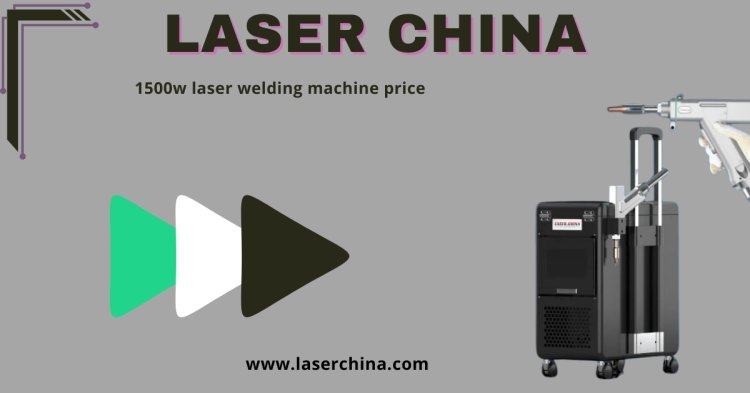What is a laser cleaner machine and why is it considered the most efficient cleaning technology
A laser cleaner machine is an advanced cleaning device that uses laser technology to remove contaminants, rust, paint, oil, and other unwanted substances from various surfaces.

A laser cleaner machine is an advanced cleaning device that uses laser technology to remove contaminants, rust, paint, oil, and other unwanted substances from various surfaces. It is widely used in industries such as manufacturing, aerospace, automotive, and cultural heritage restoration. Unlike traditional cleaning methods that rely on chemicals, abrasives, or manual labor, laser cleaning is non-contact, eco-friendly, and highly precise, making it one of the most efficient and effective cleaning solutions available today.
How Does a Laser Cleaner Machine Work?
The laser cleaner machine operates based on a process called laser ablation, where a high-intensity laser beam is directed at the contaminated surface. The laser energy is absorbed by the contaminants, causing them to vaporize or be removed in tiny particles. The underlying material, which has a different absorption rate, remains unaffected, allowing for precise and selective cleaning without damaging the base surface.
Laser cleaners are available in different types, mainly:
- Pulsed Laser Cleaning – Uses short bursts of high-energy laser pulses to remove contaminants without overheating the material.
- Continuous Wave Laser Cleaning – Uses a continuous laser beam and is suitable for large-scale industrial applications.
Advantages of a Laser Cleaner Machine Over Traditional Methods
-
Non-Contact and Non-Abrasive Cleaning
- Unlike sandblasting or grinding, laser cleaning does not physically touch the surface, preventing mechanical wear and tear.
- Ideal for delicate and high-precision components.
-
Eco-Friendly and Chemical-Free
- Traditional methods often involve hazardous chemicals that produce toxic waste.
- Laser cleaning eliminates the need for solvents, making it safer for workers and the environment.
-
Highly Precise and Selective Cleaning
- The laser can be finely controlled to remove only specific layers, making it perfect for applications like paint stripping, rust removal, and mold cleaning.
- This makes it useful in industries like electronics and aerospace, where precision is critical.
-
Cost-Effective and Low Maintenance
- Though the initial investment is high, the long-term cost savings are significant as it reduces the need for consumables such as chemicals, abrasives, and labor.
- The machine has a long lifespan and requires minimal maintenance.
-
Fast and Efficient
- Laser cleaning is much faster than manual or chemical cleaning methods, improving productivity in industrial settings.
- It can be automated for continuous operation, reducing downtime in production lines.
Applications of Laser Cleaning Machines
Laser cleaner machines are used in various fields, including:
- Automotive Industry: Removing rust, paint, and coatings from car parts and frames before repainting or assembly.
- Aerospace: Cleaning engine parts and aircraft components to maintain efficiency and safety.
- Manufacturing: Cleaning molds, welding seams, and machinery components.
- Electronics Industry: Removing oxides and contaminants from circuit boards and delicate components.
- Cultural Heritage: Restoring historical artifacts, sculptures, and buildings without causing damage.
Limitations of Laser Cleaning
Despite its numerous advantages, laser cleaning does have some limitations:
- High Initial Cost: The machines can be expensive, making them less accessible for small businesses or individual users.
- Energy Consumption: High-powered lasers require significant electricity, which may increase operational costs.
- Limited Material Compatibility: While it is ideal for metals and certain materials, it is not suitable for all surfaces, such as certain plastics or delicate fabrics.
Conclusion
A laser cleaner machine is a game-changing technology that offers a safe, efficient, and environmentally friendly way to remove contaminants from surfaces. With its precision, speed, and long-term cost benefits, it is an excellent investment for industries requiring high-quality cleaning solutions. As technology continues to advance, laser cleaning is expected to become even more accessible and widely adopted across various sectors.
What's Your Reaction?
















